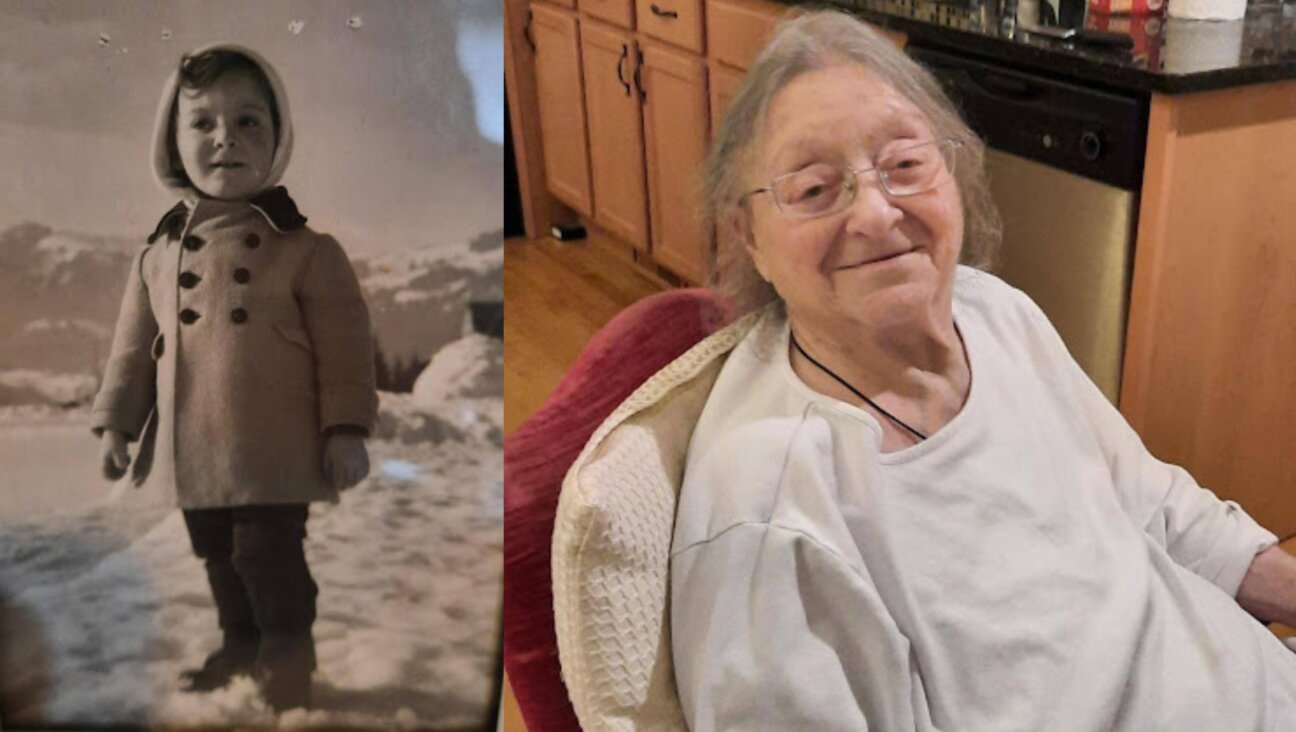Stop Calling Us Orthodox Women Who Study Talmud ‘Pioneers’

Graphic by Angelie Zaslavsky
If you were to peek inside the window of a building in Crown Heights, Brooklyn on Sunday night, you would find a group of young Jews engrossed in Talmud study. Their clothing would be conservative, and their heads would be bent over volumes of densely printed Aramaic text. Hands would be gesticulating animatedly, and Talmudic arguments would be flying:
“Does the owner of the sheep pay the value of the damaged grain, or the decrease in the value of the entire field?”
“Was the owner negligent, or compelled by forces beyond his control?”
These students are not male but female. Upon learning this fact, you might be tempted to think of them as nonconformist pioneers. As a member of that Gemara class, I can tell you that that’s not how we see ourselves at all. We aren’t seeking to be unconventional. Though Talmud study may not be typical for women in our community, our aim is actually to fit the archetype of an Orthodox Jewish woman.
The past few decades have seen a remarkable growth in advanced torah learning for Orthdodox women. There are programs such as Nishmat, Migdal Oz, Matan, and Stern’s Graduate Program In Advanced Talmudic Studies program.
These institutions have produced female halachic advisors, rabbinical court advocates, and holders of advanced degrees in Talmudic studies. And often, these women are viewed as revolutionaries, as warriors for the right to learn Talmud.
The problem with this perception is twofold. Firstly, it is based on an inaccurate premise. To paraphrase the Lubavitcher Rebbe, the modern-day Jewish woman doesn’t have the “right” to learn Torah; she has a duty to do so. It is her religious obligation to afford Judaism at least the same amount of intellectual investment and passion as the secular disciplines she engages.
That’s how I and my fellow Talmud learners in our Sunday night class see it, and why we believe casting us as revolutionaries produces a distorted view of women’s Torah learning; it turns it into a patronizing caricature, into an attempt to mimic traditional male study, rather than an embrace of a religious pursuit. It brands the woman a “female Talmud student”, rather than simply “a Talmud student”. It tells the woman to study because she is an Orthodox woman, rather than because she is an Orthodox Jew.
This way of thinking is deeply counterproductive, for the simple fact that the greatest obstacle to Talmud study becoming mainstream in the Haredi community isn’t internal opposition so much as those on the outside who applaud the movement toward granting Orthodox women the “right” to learn Talmud. Though these outsiders are well-meaning, they lack an appreciation of the Haredi worldview. We Haredim pride ourselves on being insular, on preserving our traditionalist values.
Thus, when a Haredi woman is told to learn Talmud because “it will shatter the glass ceiling of Orthodoxy,” it simply isn’t a convincing argument. In fact, it might be the reason she chooses not to study.
In contrast, when the Talmud is presented as the lifeblood of traditional Judaism that it is, it resonates. When she is told that learning Talmud will strengthen her connection to the thousands-year-old heritage she holds dear, she’s more likely to give it a try.
At the Brooklyn-based Gemara class I attend, the goal is not produce revolutionaries. It’s to create a Jewish world where a Haredi woman learning advanced Jewish texts is an expression of her Haredi identity; where the sight of a Gemara cradled under a long-skirted woman’s arm is as common as finding a Mishna tucked into her son’s school bag; where a woman’s choice to learn in a Beit Midrash is perceived as much a marker of ultra-religiosity as her choice to wear a wig or a snood.
Next time you see an Orthodox woman studying Talmud, don’t praise her as a trailblazer. Simply call her what she is: a passionately engaged religious woman. She’ll appreciate the compliment.
Devorah Silberstein recently moved to Brooklyn after spending two years studying in Israel. She teaches, tutors and writes historical narratives for a children’s magazine. She also loves to study Torah in her free time.























